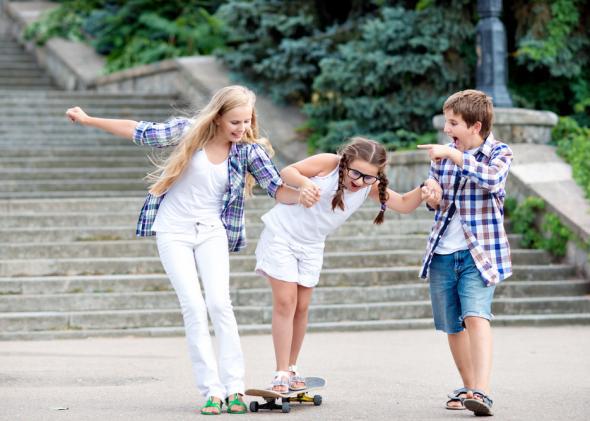Earlier this month, South Carolina mother Debra Harrell was arrested and had her 9-year-old daughter removed by social services. Her crime: Allowing the girl, who had a cellphone for emergencies, to spend her days at the park without an adult guardian. Many were outraged by Harrell’s arrest. New York’s Jonathan Chait called it a “convergence of helicopter parenting with America’s primitive family policy.” Bloomberg’s Megan McArdle wondered, “What the heck are we doing arresting parents for things that were perfectly normal 30 years ago?”
In the comments to Jessica’s Slate story about Harrell, many readers shared their stories about how much more permissive their upbringing was in the ‘60s, ‘70s, and ‘80s. “When I was a kid I ran miles around my home all day. My parents had no idea where I was or what I was doing,” was a typical sentiment. When Hanna wrote an article for the Atlantic about how American children are overprotected, there was a similar response: “as a 70s kid with my three sisters we ran around, out on bicycles and all the rest—we had to be back for supper—that was it.”
Since the Harrell story seemed to hit a nerve, we want to hear from you in a more orderly fashion. We’ve set up a survey so that you can tell us when you were allowed to do things alone, such as walk to school, go to a playground, or use sharp tools. We also included questions for parents, about when they allow, or plan to allow their children to do those same things. We want to try to pinpoint when things changed, and who they changed for: Did kids who grew up less privileged or in rural spaces have more freedom than their wealthier and more urban counterparts? Does that difference persist today?
We’d love to have your input. Please take the survey by 8 p.m. ET Friday, and we’ll publish the results in an upcoming story on Slate.
